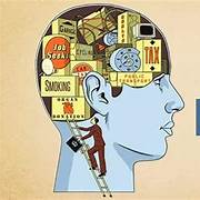Knowing Behavioral Economics
Behavioral economics explains why people make decisions that stray from rational behavior by utilizing an understanding of human psychology. Conventional economics assumes that individuals have infinite time and resources and always choose the best option.
A theory known as "bounded rationality" explains how people's ability to reason is constrained by factors such as decision difficulty, time constraints, and cognitive capacity. Often, decision-makers take a satisficing approach, looking for a workable option rather than the best one.
Prospect theory, established by Amos Tversky and Daniel Kahneman, the Nobel Prize-winning cognitive psychologists who also invented the fast and slow thinking systems, demonstrates how clinical psychology informs irrational decision-making. Prospect theory consists of two stages: an evaluation stage where dangerous alternatives are analyzed using psychological concepts like loss aversion and reference dependency, and an editing step where heuristics or mental shortcuts are utilized in risky situations. Further advancements in behavioral economics were motivated by these theories and a deeper comprehension of irrational decision-making.
For what reason is behavioral economics important?
It is critical to comprehend economic behavior and the motivations behind the decisions made by economic actors. Behavioral economists then examine them using psychological, moral, and social variables.
Behavioral economics in particular challenges these presumptions. Are people really able to make logical decisions? Does it hold true in all circumstances? People might not behave as conventional economics textbooks indicate, after all.
Generally speaking, economic actors are taken to be rational in textbooks. Individuals attempt to maximize satisfaction when consuming goods and services. Additionally, companies that provide goods and services aim to maximize earnings.
Understanding the theory of behavioral economics is crucial. One of its applications is in creating policies. It can assist in the creation of more sensible economic policies by governments and other organizations. Their aim is to comprehend the rationale behind the acts taken by economic actors. As a result, they are able to frame decisions more skillfully and steer people toward better courses of action.
Behavioral Economics concepts
Behavioral economics, as I indicated previously, clarifies the reasons behind economic decisions, particularly those that have to do with human psychology. When given multiple options, people will want to maximize their level of happiness in economics. They have to make this decision since their needs and wants are limitless, but their resources are scarce. Conventional economics makes the supposition that people are the economic man and that they make logical choices. But in any case, are people ever sensible? For example, why do some people deliberately drive faster than the posted speed limit? Why do individuals consume so much junk food, considering its detrimental consequences on health? That casts doubt on the idea that individuals are homo economicus.
Contrary to what traditional economics assumes, behavioral economics claims that economic players are not always rational in all of their decisions. A portion of them might make illogical decisions. Subsequently, economists incorporated a psychological component into conventional models to gain a deeper understanding of decision-making incentives and conduct.
Some of the topics in behavioral economics are:
-
Bounded rationality: People often base their well-informed conclusions on their inadequate knowledge. They come to the conclusion that having the necessary data is adequate and make a judgment that is "good enough" rather than optimal.
-
Cognitive Bias: Decisions are made by people according to their worldview, values, and beliefs. Let's say someone has a preference for a certain color. Then, because it is their favorite hue and looks well, they are probably going to purchase items that are very useless.
-
Discrimination: People in this situation often reject options because they don't like them. Discrimination against a concept can be greatly aided by preconceived biases that have nothing to do with the real circumstances. Their dislike of the alternatives may encourage them to favor different choices.
-
Choice Architecture: People are readily swayed, and this is frequently evident in the way marketers design offers or incentives to persuade customers to purchase particular goods. Think about the arrangement of a cracker display in a grocery store next to the cheese section. This kind of design aims to influence a customer's choice by using a staged presentation, frequently involving complimentary products.
-
Herd Mentality: What other individuals are doing affects a lot of consumer decisions. Herd mentality is the idea that people make decisions based on what other people do rather than always what is best for themselves. This might be caused by a fear of losing out or a desire to belong to a larger group. After all, as long as other supporters understand how you feel, it is much simpler to support your favorite club, even if they haven't won a championship in a long time.
Behavioral economists, in contrast to conventional economists, seldom ever use mathematical models to forecast results. People are always evolving and changing in response to various circumstances. Decisions' outcomes are hence unpredictable. Rather, they simply looked at economic players' historical conduct. Subsequently, they carried out other tests to investigate the potential actions of financial players in the scenarios they created.
The idea of behavioral economics is used in several contemporary economic theories. Ethical economics is one area in which it is used.In this instance, economic actors take into account the social and environmental effects of their choices in addition to profit.
Significant knowledge learned:
-
Conventional economic theory is not the same as behavioral economics. It facilitates the understanding of why people make decisions that deviate from reason. In order to encourage people to make thoughtful decisions, this idea investigates the variables that affect them and makes minor adjustments.
-
A few examples of the variables that affect human decision-making are choice architecture, discrimination, cognitive bias, and bounded rationality.
-
The goal is to investigate how people's decision-making is influenced by various forms of information as well as how people's psychological and cognitive biases affect socioeconomic and political results.
-
Behavioral economic studies are used by firms, organizations, and governments to influence people to take particular actions.

